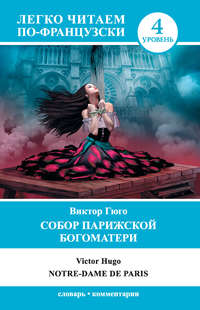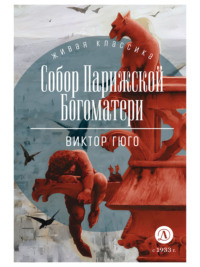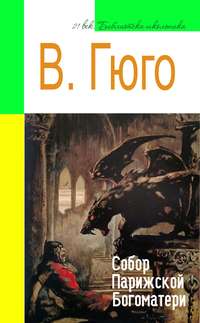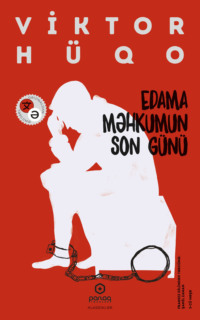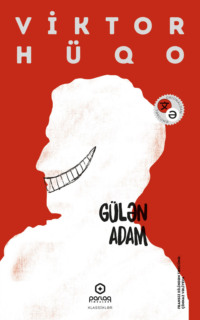 полная версия
полная версияThe Memoirs of Victor Hugo
I have authorised the fourth edition of 3,000 copies of Les Châtiments, which will make to date 11,000 copies for Paris alone.
October 30. – I received the letter of the Société des Gens de Lettres asking me to authorise a public reading of Les Chatiments, the proceeds of which will give to Paris another cannon to be called the “Victor Hugo.” I gave the authorisation. In my reply written this morning I demanded that instead of “Victor Hugo” the gun be called the “Châteaudun.” The reading will take place at the Porte Saint Martin.
M. Berton came. I read to him L’Expiation, which he is to read. M. and Mme. Meurice and d’Alton-Shée were present at the reading.
News has arrived that Metz has capitulated and that Bazaine’s army has surrendered.
Bills announcing the reading of Les Châtiments have been posted. M. Raphael Felix came to tell me the time at which the rehearsal is to take place tomorrow. I hired a seven-seat box for this reading, which I placed at the disposal of the ladies.
On returning home this evening I met in front of the Mairie, M. Chaudey, who was at the Lausanne Peace Conference and who is Mayor of the Sixth Arrondissement. He was with M. Philibert Audebrand. We talked sorrowfully about the taking of Metz.
October 31. – Skirmish at the Hotel de Ville. Blanqui, Flourens and Delescluze want to overthrow the provisional power, Trochu and Jules Favre. I refuse to associate myself with them.
An immense crowd. My name is on the lists of members for the proposed Government. I persist in my refusal.
Flourens and Blanqui held some of the members of the Government prisoners at the Hotel de Ville all day.
At midnight some National Guards came from the Hotel de Ville to fetch me “to preside,” they said, “over the new Government.” I replied that I was most emphatically opposed to this attempt to seize the power and refused to go to the Hotel de Ville.
At 3 o’clock in the morning Flourens and Blanqui quitted the Hotel de Ville and Trochu entered it.
The Commune of Paris is to be elected.
November 1. – We have postponed for a few days the reading of Les Châtiments, which was to have been given at the Porte Saint Martin to-day, Tuesday.
Louis Blanc came this morning to consult me as to what ought to be the conduct of the Commune.
The newspapers unanimously praise the attitude I took yesterday in rejecting the advances made to me.
November 2. – The Government demands a “yes” or a “no.”
Louis Blanc and my sons came to talk to me about it.
The report that Alexandre Dumas is dead is denied.
November 4. – I have been requested to be Mayor of the Third, also of the Eleventh, Arrondissement. I refused.
I went to the rehearsal of Les Châtiments at the Porte Saint Martin. Frédérick Lemaitre and Mmes. Laurent, Lia Felix and Duguéret were present.
November 5. – To-day the public reading of Les Châtiments, the proceeds of which are to purchase a cannon for the defence of Paris, was given.
The Third, Eleventh and Fifteenth Arrondissements want me to stand for Mayor. I refuse.
Mérimée has died at Cannes. Dumas is not dead, but he is paralyzed.
November 7. – The 24th Battalion waited upon me and wanted me to give them a cannon.
November 8. – Last night, on returning from a visit to General Le Flo, I for the first time crossed the Pont des Tuileries, which has been built since my departure from France.
November 9. – The net receipts from the reading of Les Châtiments at the Porte Saint Martin for the gun which I have named the “Châteaudun” amounted to 7,000 francs, the balance going to pay the attendants, firemen, and lighting, the only expenses charged.
At the Cail works mitrailleuses of a new model, called the Gatling model, are being made.
Little Jeanne is beginning to chatter.
A second reading of Les Châtiments for another cannon will be given at the “Théâtre Français”.
November 11. – Mlle. Periga called today to rehearse Pauline Roland, which she will read at the second reading of Les Châtiments, announced for to-morrow at the Porte Saint Martin. I took a carriage, dropped Mlle. Périga at her home, and then went to the rehearsal of to-morrow’s reading at the theatre. Frederick Lemaitre, Berton, Maubart, Taillade, Lacressonnière, Charly, Mmes. Laurent, Lia Felix, Rousseil, M. Raphael Felix and the committee of the Société des Gens de Lettres were there.
After the rehearsal the wounded of the Porte Saint Martin ambulance asked me, through Mme. Laurent, to go and see them. I said: “With all my heart,” and I went.
They are lying in several rooms, chief of which is the old green-room of the theatre with its big round mirrors, where in 1831 I read to the actors “Marion de Lorme”. M. Crosnier was then director. (Mme. Dorval and Bocage were present at that reading.) On entering I said to the wounded men: “Behold one who envies you. I desire nothing more on earth but one of your wounds. I salute you, children of France, favourite sons of the Republic, elect who suffer for the Fatherland.”
They seemed to be greatly moved. I shook hands with each of them. One held out his mutilated wrist. Another had lost his nose. One had that very morning undergone two painful operations. A very young man had been decorated with the military medal a few hours before. A convalescent said to me: “I am a Franc-Comtois.” “Like myself,” said I. And I embraced him. The nurses, in white aprons, who are the actresses of the theatre, burst into tears.
November 13. – I had M. and Mme. Paul Meurice, Vacquerie and Louis Blanc to dinner this evening. We dined at 6 o’clock, as the second reading of Les Chatiments was fixed to begin at the Porte Saint Martin at 7.30. I offered a box to Mme. Paul Meurice for the reading.
November 14. – The receipts for Les Chatiments last night (without counting the collection taken up in the theatre) amounted to 8,000 francs.
Good news! General d’Aurelle de Paladine has retaken Orleans and beaten the Prussians. Schoelcher came to inform me of it.
November 15. – Visit from M. Arsène Houssaye and Henri Houssaye, his son. He is going to have Stella read at his house in aid of the wounded.
M. Valois came to tell me that the two readings of Les Châtiments brought in 14,000 francs. For this sum not two, but three guns can be purchased. The Société des Gens de Lettres desires that, the first having been named by me the “Châteaudun” and the second “Les Châtiments”, the third shall be called the “Victor Hugo.” I have consented.
Pierre Veron has sent me Daumier’s fine drawing representing the Empire annihilated by Les Chatiments.
November 16. – Baroche, they say, has died at Caen.
M. Edouard Thierry refuses to allow the fifth act of “Hernani” to be played at the Porte Saint Martin for the victims of Châteaudun and for the cannon of the 24th Battalion. A queer obstacle this M. Thierry!
November 17. – Visit from the Gens de Lettres committee. The committee came to ask me to authorise a reading of Les Châtiments at the Opera to raise funds for another cannon.
I mention here once for all that I authorise whoever desires to do so, to read or perform whatever he likes that I have written, if it be for cannon, the wounded, ambulances, workshops, orphanages, victims of the war, or the poor, and that I abandon all my royalties on these readings or performances.
I decide that the third reading of Les Chatiments shall be given at the Opera gratis for the people.
November 19. – Mme. Marie Laurent came to recite to me Les Pauvres Gens, which she will recite at the Porte Saint Martin to-morrow to raise funds for a cannon.
November 20. – Last evening there was an aurora borealis.
“La Grosse Josephine” is no longer my neighbour. She has just been transported to Bastion No. 41. It took twenty-six horses to draw her. I am sorry they have taken her away. At night I could hear her deep voice, and it seemed to me that she was speaking to me. I divided my love between “Grosse Joséphine” and Little Jeanne.
Little Jeanne can now say “papa” and “mamma” very well.
To-day there was a review of the National Guard.
November 21. – Mme. Jules Simon and Mme. Sarah Bernhardt came to see me.
After dinner many visitors called, and the drawing-room was crowded. It appears that Veuillot insulted me.
Little Jeanne begins to crawl on her hands and knees very well indeed.
November 23. – Jules Simon writes me that the Opera will be given to me for the people (free reading of Les Châtiments) any day I fix upon. I wanted Sunday, but out of consideration for the concert that the actors and employés of the Opera give Sunday night for their own benefit I have selected Monday.
Frédérick Lemaitre called. He kissed my hands and wept.
It has been raining for two or three days. The rain has soaked the plains, the cannon-wheels would sink into the ground, and the sortie has therefore had to be deferred. For two days Paris has been living on salt meat. A rat costs 8 sous.
November 24. – I authorise the Théâtre Français to play to-morrow, Friday, the 25th, on behalf of the victims of the war, the fifth act of “Hernani” by the actors of the Théâtre Français and the last act of “Lucrece Borgia” by the actors of the Porte Saint Martin, and in addition the recitation as an intermede of extracts from Les Châtiments, Les Contemplations and La Légende des Siècles.
Mlle. Favart came this morning to rehearse with me Booz Endormie. Then we went together to the Français for the rehearsal for the performance of to-morrow. She acted Doña Sol very well indeed. Mme. Laurent (Lucrèce Borgia) also played well. During the rehearsal M. de Flavigny dropped in. I said to him: “Good morning, my dear ex-colleague.” He looked at me, then with some emotion exclaimed: “Hello! is that you?” And he added: “How well preserved you are!” I replied: “Banishment preserves one.”
I returned the ticket for a box that the Théâtre Français sent to me for to-morrow’s performance, and hired a box, which I placed at the disposal of Mme. Paul Meurice.
After dinner the new Prefect of Police, M. Cresson, paid me a visit. M. Cresson was the barrister who twenty years ago defended the murderers of General Bréa. He spoke to me about the free reading of Les Châtiments to be given on Monday the 28th at the Opera. It is feared that an immense crowd – all the faubourgs – will be attracted. More than 25,000 men and women. Three thousand will be able to get in. What is to be done with the rest? The Government is uneasy. Many are called but few will be chosen, and it fears that a crush, fighting and disorders will result. The Government will refuse me nothing. It wants to know whether I will accept the responsibility. It will do whatever I wish done. The Prefect of Police has been instructed to come to an understanding with me about it.
I said to M. Cresson: “Let us consult Vacquerie and Meurice and my two sons.” He replied: “Willingly.” The six of us held a council. We decided that three thousand tickets should be distributed on Sunday, the day before the lecture, at the mairies of the twenty arrondissements to the first persons who presented themselves after noon. Each arrondissement will receive a number of tickets in proportion to the number of its population. The next day the 3,000 holders of tickets (to all places) will wait their turn at the doors of the Opera without causing any obstruction or trouble. The “Journal Officiel” and special posters will apprise the public of the measures taken in the interest of public order.
November 25. – Mlle. Lia Felix came to rehearse Sacer Esto, which she will recite to the people on Monday.
M. Tony Révillon, who is to make a speech, came to see me with the Gens de Lettres committee.
A deputation of Americans from the United States came to express their indignation with the Government of the American Republic and with President Grant for abandoning France – “To which the American Republic owes so much!” said I. “Owes everything,” declared one of the Americans present.
A good deal of cannonading has been heard for several days. To-day it redoubled.
Mme. Meurice wants some fowls and rabbits in order to provide against the coming famine. She is having a hutch made for them in my little garden. The carpenter who is constructing it entered my chamber a little while ago and said: “I would like to touch your hand.” I pressed both his hands in mine.
November 27. – The Academy has given a sign of life. I have received official notice that in future it will hold an extraordinary session every Tuesday.
Pâtés of rat are being made. They are said to be very good.
An onion costs a sou. A potato costs a sou.
They have given up asking my authorisation to recite my works which are being recited everywhere without my permission. They are right. What I write is not my own. I am a public thing.
November 28. – Noel Parfait came to ask my help for Châteaudun. Certainly; with all my heart!
Les Châtiments was recited gratis at the Opera. An immense crowd. A gilt wreath was thrown on the stage. I gave it to Georges and Jeanne. The collection made in Prussian helmets by the actresses produced 1,521 francs 35 centimes in coppers.
Emile Allix brought us a leg of antelope from the Jardin des Plantes. It is excellent.
To-night the sortie is to be made.
November 29. – All night long I heard the cannon.
The fowls were installed in my garden to-day.
The sortie is being delayed. The bridge thrown across the Marne by Ducros has been carried away, the Prussians having blown open the locks.
November 30. – All night long the cannon thundered. The battle continues.
At midnight last night as I was returning home through the Rue de Richelieu from the Pavilion de Rohan, I saw just beyond the National Library, the street being deserted and dark at the time, a window open on the sixth floor of a very high house and a very bright light, which appeared to be that of a petroleum lamp, appear and disappear several times; then the window closed and the street became dark again. Was it a signal?
The cannon can be heard at three points round Paris, to the east, west and south. This is because a triple attack is being made on the ring the Prussians have drawn round us. The attack is being made at Saint Denis by Laroncière, at Courbevoie by Vinoy, and on the Marne by Ducros. Laroncière is said to have swept the peninsula of Gennevilliers and compelled a Saxon regiment to lay down its arms, and Vinoy is said to have destroyed the Prussian works beyond Bougival. As to Ducros, he has crossed the Marne, taken and retaken Montédy, and almost holds Villiers-sur-Marne. What one experiences on hearing the cannon is a great desire to be there.
This evening Pelletan sent his son, Camille Pelletan, to inform me on behalf of the Government that to-morrow’s operations will be decisive.
December 1. – It appears that Louise Michel has been arrested. I will do all that is necessary to have her released immediately. Mme. Meurice is occupying herself about it. She went out this morning for that purpose.
D’Alton-Shée came to see me.
We ate bear for dinner.
I have written to the Prefect of Police to have Louise Michel released.
There was no fighting to-day. The positions taken were fortified.
December 2. – Louise Michel has been released. She came to thank me.
Last evening M. Coquelin called to recite several pieces from Les Châtiments.
It is freezing. The basin of the Pigalle fountain is frozen over.
The cannonade recommenced at daybreak.
11.30 A.M. – The cannonade increases.
Flourens wrote to me yesterday and Rochefort to-day. They are coming round to me again.
Dorian, Minister of Public Works, and Pelletan came to dine with me.
Excellent news to-night! The Army of the Loire is at Montargis. The Army of Paris has driven back the Prussians from the Avron plateau. The despatches announcing these successes are read aloud at the doors of the mairies.
Victory! The Second of December has been wiped out!
December 3. – General Renault, who was wounded in the foot by a splinter from a shell, is dead.
I told Schoelcher that I want to go out with my sons if the batteries of the National Guard to which they belong are sent to the front. The batteries drew lots. Four are to go. One of them is the 10th Battery, of which Victor is a member. I will go out with that battery. Charles does not belong to it, which is a good job; he will stay behind, he has two children. I will order him to stay. Vacquerie and Meurice are members of the 10th Battery. We shall be together in the combat. I will have a cape with a hood made for me. What I fear is the cold at night.
I made some shadows on the wall for Georges and Jeanne. Jeanne laughed delightedly at the shadow and the grimaces of the profile; but when she saw that the shadow was me she cried and screamed. She seemed to say: “I don’t want you to be a phantom!” Poor, sweet angel! Perhaps she has a presentiment of the coming battle.
Yesterday we ate some stag; the day before we partook of bear; and the two days previous we fared on antelope. These were presents from the Jardin des Plantes.
To-night at 11 o’clock, cannonading. Violent and brief.
December 4. – A notice has been posted on my door indicating the precautions to be taken “in case of bombardment.” That is the title of the notice.
There is a pause in the combat. Our army has recrossed the Marne.
Little Jeanne crawls very well on her bands and knees and says “papa” very prettily.
December 5. – I have just seen a magnificent hearse, draped with black velvet, embroidered with an “H” surrounded by silver stars, go by to fetch its burden. A Roman would not disdain to be borne in it.
Gautier came to dine with me. After dinner Banville and Coppée called.
Bad news. Orleans has been captured from us again. No matter. Let us persist.
December 7. – I had Gautier, Banville and François Coppée to dinner. After dinner Asselineau came. I read Floréal and L’Egout de Rome to them.
December 8. – The “Patrie en Danger” has ceased to appear. In the absence of readers, says Blanqui.
M. Maurice Lachâtre, publisher, came to make me an offer for my next book. He has sent me his Dictionary and The History of the Revolution by Louis Blanc. I shall present to him Napoleon the Little and Les Châtiments.
December 9. – I woke up in the night and wrote some verses. At the same time I heard the cannon.
M. Bondes came to see me. The correspondent of the “Times,” who is at Versailles, has written him that the guns for the bombardment of Paris have arrived. They are Krupp guns. They are awaiting their carriages. They have been arranged in the Prussian arsenal at Versailles side by side “like bottles in a cellar,” according to this Englishman.
I copy the following from a newspaper:
M. Victor Hugo had manifested the intention to leave Paris unarmed, with the artillery battery of the National Guard to which his two sons belong.
The 144th Battalion of the National Guard went in a body to the poet’s residence in the Avenue Frochot. Two delegates waited upon him.
These honourable citizens went to forbid Victor Hugo to carry out his plan, which he had announced some time ago in his “Address to the Germans.”
“Everybody can fight,” the deputation told him. “But everybody cannot write Les Chatiments. Stay at home, therefore, and take care of a life that is so precious to France.”
I do not remember the number of the battalion. It was not the 144th. Here are the terms of the address which was read to me by the major of the battalion:
The National Guard of Paris forbids Victor Hugo to go to the front, inasmuch as everybody can go to the front, whereas Victor Hugo alone can do what Victor Hugo does.
“Forbids” is touching and charming.
December 11. – Rostan came to see me. He has his arm in a sling. He was wounded at Créteil. It was at night. A German soldier rushed at him and pierced his arm with a bayonet. Rostan retaliated with a bayonet thrust in the German’s shoulder. Both fell and rolled into a ditch. Then they became good friends. Rostan speaks a little broken German.
“Who are you?”
“I am a Wurtembergian. I am twenty-two years old. My father is a clockmaker of Leipsic.”
They remained in the ditch for three hours, bleeding, numb with cold, helping each other. Rostan, wounded, brought the man who wounded him back as a prisoner. He goes to see him at the hospital. These two men adore each other. They wanted to kill each other, and now they would die for each other.
Eliminate kings from the dispute!
Visit from M. Rey. The Ledru-Rollin group is completely disorganized. No more parties; the Republic. It is well.
I presented some Dutch cheese to Mme. Paul Meurice. Sleet is falling.
December 12. – I arrived in Brussels nineteen years ago to-day.
December 13. – Since yesterday Paris has been lighted with petroleum.
Heavy cannonade to-night.
December 14. – Thaw. Cannonade.
To-night we glanced over Goya’s Disasters of War (brought by Burty, the art critic). It is fine and hideous.
December 15. – Emmanuel Arago, Minister of Justice, came to see me and informed me that there would be fresh meat until February 15, but that in future only brown bread would be made in Paris. There will be enough of this to last for five months.
Allix brought me a medal struck to commemorate my return to France. It bears on one side a winged genius and the words: “Liberty, Equality and Fraternity,” and on the other side, round the rim: “Appeal to Universal Democracy,” and in the centre: “To Victor Hugo, From His Grateful Fatherland.’ September, 1870.”
This medal is sold in the streets and costs 5 centimes. There is a little ring in it by which it can be suspended to a chain.
December 16. – Pelleport22 came to-night. I requested him to visit Flourens, in Mazas Prison, on my behalf, and to take him a copy of Napoleon the Little.
December 17. – The “Electeur Libre” calls upon Louis Blanc and me to enter the Government, and affirms that it is our duty to do so. My duty is dictated to me by my conscience.
I saw the gunboat “Estoc” pass under the Pont des Arts, going up Seine. She is a fine vessel and her big gun has a terribly grand appearance.
December 18. – I worked a magic lantern for little Georges and little Jeanne.
My royalty for Mme. Favart’s recitation of Stella at a performance given by the 14th Battalion amounted to 130 francs. My agent took my royalty in spite of my instructions. I have ordered him to turn the money over to the sick fund of the battalion.
M. Hetzel writes: “The closing of the printing office is imminent, as I can get no more coal to keep the presses going.”
I authorise another issue of 3,000 copies of Les Châtiments, which will bring the total for Paris up to 22,000.
December 20. – Captain Breton, of the Garde Mobile, who has been cashiered on the charge of being a coward, brought against him by his lieutenant-colonel, demands a court-martial, but first of all to be sent to the firing line. His company leaves to-morrow morning. He begs me to obtain for him from the Minister of War permission to go and get himself killed. I have written to General Le Flô about him. It is likely that he will take part in to-morrow’s battle.
December 21. – At 3 o’clock this morning I heard the bugles of the troops marching to battle. When will my turn come?
December 22. – Yesterday was a good day. The action continues. The thunder of cannon can be heard to the east and west.
Little Jeanne begins to talk at length and very expressively. But it is impossible to understand a word she says. She laughs.
Leopold has sent me thirteen fresh eggs, which I will reserve for little Georges and little Jeanne.
Louis Blanc came to dine with me. He came on behalf of Edmond Adam, Louis Jourdan, Cernuschi and others to tell me that he and I must go to Trochu and summon him to save Paris or resign. I refused. I should be posing as an arbiter of the situation and at the same time hamper a battle begun and which may be a successful one. Louis Blanc was of my way of thinking, as were also Meurice, Vacquerie and my sons, who dined with us.



